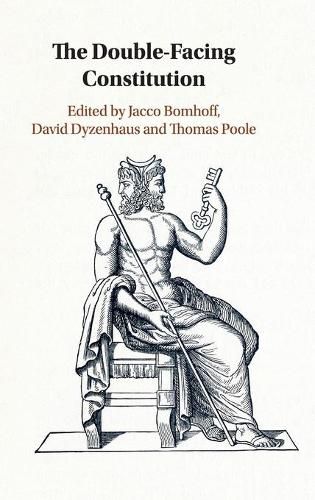Readings Newsletter
Become a Readings Member to make your shopping experience even easier.
Sign in or sign up for free!
You’re not far away from qualifying for FREE standard shipping within Australia
You’ve qualified for FREE standard shipping within Australia
The cart is loading…






This collection explores some of the many ways in which constitutional orders engage with, and are shaped by, their exteriors. Constitutional and legal theory often marginalize ‘foreign’ elements, such as norms originating in other legal systems, the movement of individuals across borders, or the application of domestic law to foreign affairs. In The Double-Facing Constitution, these instances of boundary crossing lie at the heart of an alternative understanding of constitutions as permeable membranes, through which norms can and sometimes must travel. Constitutional orders are facing both inwards and outwards - and the outside world influences their interiors just as much as their internal orders help shape their surroundings. Different essays discuss the theoretical and historical foundations of this view (grounded in Kelsen, Hobbes, Locke, Rousseau and others), and its contemporary relevance for areas as diverse as migration law, the conflict of laws, and foreign relations law.
$9.00 standard shipping within Australia
FREE standard shipping within Australia for orders over $100.00
Express & International shipping calculated at checkout
This collection explores some of the many ways in which constitutional orders engage with, and are shaped by, their exteriors. Constitutional and legal theory often marginalize ‘foreign’ elements, such as norms originating in other legal systems, the movement of individuals across borders, or the application of domestic law to foreign affairs. In The Double-Facing Constitution, these instances of boundary crossing lie at the heart of an alternative understanding of constitutions as permeable membranes, through which norms can and sometimes must travel. Constitutional orders are facing both inwards and outwards - and the outside world influences their interiors just as much as their internal orders help shape their surroundings. Different essays discuss the theoretical and historical foundations of this view (grounded in Kelsen, Hobbes, Locke, Rousseau and others), and its contemporary relevance for areas as diverse as migration law, the conflict of laws, and foreign relations law.